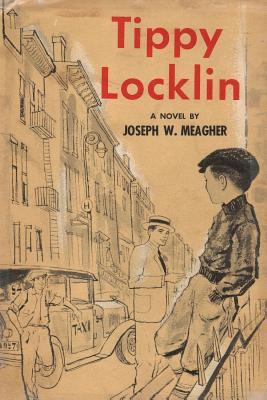Joseph William Meagher's Tippy Locklin is a magical and wildly funny re-creation of a Brooklyn boyhood in the 1920s. As Richard Sullivan in The New York Times Book Review observed, it is a novel "so loaded with warm, hearty people, so charged with honest, affectionate fun that in final effect it is a small celebration of the very goodness of being alive." For what Tippy's world instills in him is "a belief that all is intrinsically well and that the world is not a jungle of broken glass but a well-ordered place where things go wrong and people misbehave, but whose foundation is strong and indestructible."
The characters in Tippy's world are memorable. Especially notable is his neighbor, Mr. Duffy the cabdriver, wondrously tattooed with a motto of his own composition: "For God, Country, Mother and Girl Friend." Mr. Duffy has an enormous wife ("Lousy cook, but the strongest woman you ever saw"), a lady addicted to sitting down. Early on she endears herself to the reader when she sits down on a crate, part of the parlor furniture, and just as she cozily establishes herself, there is a noise of splintering wood and above it a pleasant tinkling sound. "Fine!" Mr. Duffy says. "Those were the Christmas tree ornaments."
Reading Tippy Locklin is like opening a grab bag of delightful surprises - the laughter, warmth and love that fill the book remain vivid long after the last page has been turned.
"I little thought," wrote Dorothy Parker at the close of her lengthy review in Esquire magazine, "that I should ever go on like this over a book about a small boy - especially one named Tippy. But here I am, and all naked of apologies."
